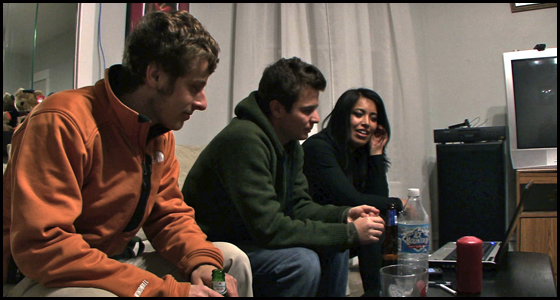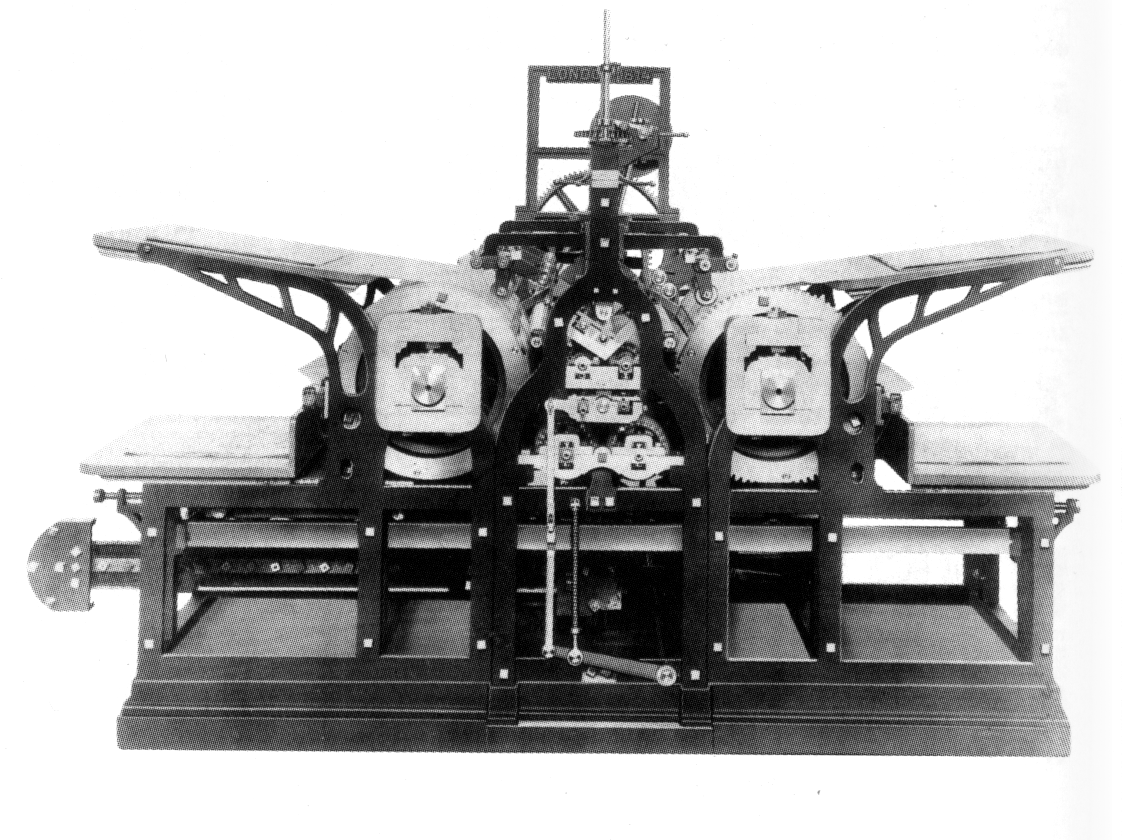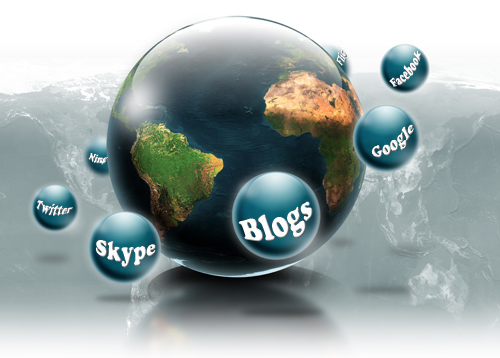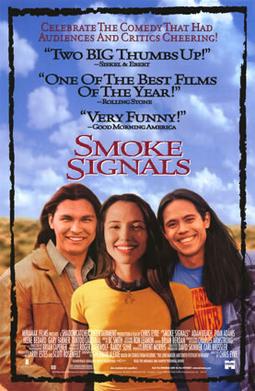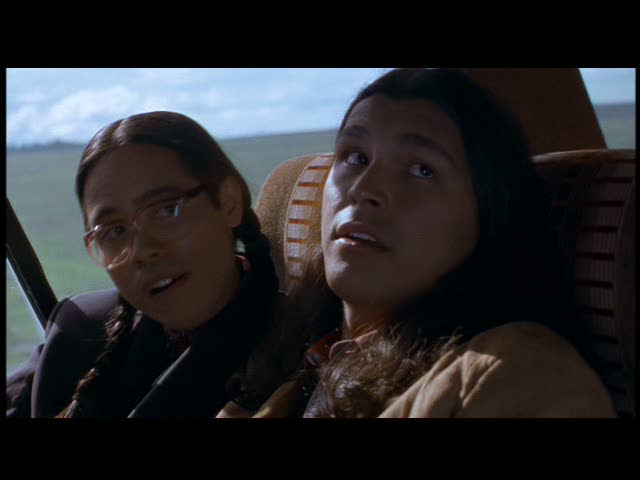It's tough for a Native in the
modern world, but through sticking together and staying true to one’s roots a
person can heal from the pain society unleashes. In the film Reel Injun, Sacheen Littlefeather doesn’t
accept the award on Marlon Brando behalf. She says, “He very regretfully cannot
accept this very generous award and the reasons for this being; the treatment
of American Indians today by the film industry, (boos/applause from the
audience) excuse me; and on television and movie reruns and also with recent
happenings at wounded knee. I beg at this time that I have not intruded upon
this evening, and that we will in the future, our hearts and our understandings
will meet with love and generosity. Thanks on behalf of Marlon Brando”. Brando
is trying to make a statement by not excepting this award. He is trying to make
people aware of the issues individuals from the Native Nations have to go
through on a daily basis. Littlefeather is utilizing empathy and trying to
connect to her audience to show the pain that she has gone through because of
the oppression of individuals in Native Nations. When Native were first
introduced to cinema, they were portrayed as inhuman, barbaric, and/or the evil
villain which would cause many problems for Native in real life. Russell Means
says, '"When we watched the Indians getting slaughtered at the end of
every movie... well, my brother would refuse to watch it. Every time that bugle
went off and the charge started, my brother - he was a year and a half younger
than me - he'd go like this... [bending over, head between knees] ...and he
wouldn't look. He wouldn't watch. And we'd come out of those theaters after
the, uh, cavalry had rescued the white people, and all of a sudden we'd hear,
'There's those Indians,' and we'd start fighting. We had to fight them white
kids. Every Saturday we knew we was gonna get in a fight"' (Reel Injun). No matter the age of the
individuals from the Native Nations, the depiction of individuals from the
Native Nations in the film industry made many suffer through being treated like
inhumane garbage in reality. Everything the majority culture knew about Native people
as a people and their culture they learned from cinema, which was an extremely
skewed view. Jesse Wente says, "...this is an ingenious act of
colonialism, you are essentially robbing nations of an identity and grouping
them into one" (Reel Injun). In
cinema Native people wore essentially the same clothing, performed the same
rituals and ceremonies no matter what Native Nation the director was trying to
portrayal. Individuals from the Native Nations had and have put up with a very
negative portrayal of their people and culture for years, but through it all
many still stand up for what they believe. Charlie Hill says, "We're
creative natives. And we're... and we're like the Energizer Bunny. The
mightiest nation in the world tried to exterminate us, Anglicize us,
Christianize us, Americanize us, but we just keep going and going. And I think
that Energizer Bunny must be Indian. He's got that little water drum he
plays." (Reel Injun) Although
Native people had to endure such prejudice throughout their history they have
stayed a strong people, and many, true to their customs. Through connection and
empathy for people of the Native Nations all of these struggles can be
resolved.
Through connecting to nature,
one can heal. In the novel Ceremony, Leslie
Marmon Silko illustrates how Post Traumatic Stress is affecting the character
Tayo. "He could still see the face of the little boy, looking back at him,
smiling, and he tried to vomit the image from his head because it was Rocky's
smiling face from a long time before, when they were little kids together. He couldn’t
vomit any more, and the little face was still there, so he cried at how the world
had come undone" (Silko16-17). Tayo wants to forget the innocence of young
Rocky because he feels he can't move on if he doesn’t. Tayo starts to heal from
his PTS through connecting with Ts'eh, a spirit of nature; in this instance he
feels her presence as he sleeps. "The sunlight moved up and down his back
like hands, and he felt the muscles of his neck and belly relax; he lay down
beside the pool, across from her and closed his eyes. He dreamed he made love
with her there. He felt the warm sand on his toes and knees; he felt her body,
and it was as warm as the sand, and he couldn't feel where her body ended and
the sand began" (Silko 206). He feels at peace with himself and nature and
Ts'eh is helping him heal. Another way Tayo connects and heals in the novel Ceremony is by taking care of spotted
cattle. “The cattle give
Tayo a reason to follow the land, to bring back the rain and thereby to heal
his emotional wounds in the process. In searching for the spotted cattle, he is
searching for a direct connection to the land. Before Josiah passed away, Tayo
promised to watch over and take care of his spotted cattle. He realizes,
therefore, that by finding the spotted cattle and bringing back water, he will
also honor the commitment to Josiah and continue his healing ceremony. As
spirit guides, the spotted cattle help Tayo connect with the desert and
mountains, to learn to forgive, to release the guilt, and to realize the
healing power of love” (Blumenthal, 377). Throughout the novel Ceremony, Tayo
learns how to connect with nature to get the healing he needs to overcome the
PTS from his past. Through connection one can overcome detrimental trauma.
Humanity can take care of one
another. Joseph Garner went out to see if the Internet made the world more
sociable or more isolated because of social media and other ways to connect
without going out and having face to face contact. Garner took on this task in
the movie Craigslist Joe. "Some
say we've lost the sense of community, that used to carry us through tough
times. Some say technology and social media fuel this isolation. Have we become
so caught up in our own lives, that we don't notice life outside our bubble? In
my own small way, I'm going to try to find out." He finds in this movie
that there will always be people out in the world that want to help you if your
in need and reach out through the internet. After his long journey, surviving
with only the clothes on his back and the handouts from people on craigslist,
Garner results were incredible. "The generosity of people, and like the
stories they shared, and the connections I made, in one month, was so deep.
Meeting everyone and telling them my story, and the journey, and having people
invite a complete stranger into their homes and feed me and go out and share
their-selves and their lives with me; It was truly inspiring on humanity, to
know that we can take care of each other" (Craigslist Joe). The people Garner meets give him food out of the
goodness of their hearts. Random people are very supportive of a complete
stranger to try to spread a message that humans are naturally supportive and
empathetic to those in need. Daisy, one of the people Garner meets through his
travels, is a dominatrix, who kicks men in the balls for a living. "Their
is always like the phycological approach to like why would somebody do that
like I want to know that person" (Craigslist
Joe). Daisy chose her job because she wants to connect with strangers to
get a better understanding of why people want to be physically abused for
pleasure. Through connection and empathy one can understand what several are
going through and help many overcome.
Through empathy humans can help
others that they can see are struggling. In the RSA Animated video The Empathic
Civilisation, Jeremy Rifkin explains how empathy is a big part of human
chemistry. "We are soft-wired to experience another's plight as if we are
experiencing it ourselves... We are actually soft-wired for sociability,
attachment (as John Bulby might of said), affection, companionship and that the
first drive is to actually belong; It's an empathic drive." This evidence
suggests humans are not naturally soft wired for aggression, violence,
self-interest, and utilitarianism. Rifkin later illustrates how living
organisms are connected and need to be aware not only this notion, but also how
fragile life is. “So when we talk about building an empathic civilization,
we’re not talking about utopia, we’re talking about the ability of human beings
to show solidarity, not only with each other but our fellow creatures who have
a one and only life on this little planet” (Rifkin). Through the acknowledgement
of death and the understanding of suffering and mortality organisms utilize
empathy to stay connected. Rifkin then goes on to explain how through empathy
we can accomplish anything as a human species. “We have the technology that
allows us to extend the central nervous system and to think viscerally as a
family, not just intellectually. When that earthquake hit Haiti and then Chile,
but especially Haiti. Within an hour the twitters came out and within two hours
some cell phone videos, YouTube, and within three hours the whole human race
was in an empathic embrace coming to the aid of Haiti.” Without empathy human
beings could never accomplish any task involving the extension of a helping
hand. Through an empathic connection the human race can overcome any struggle.
Some must sacrifice, for others
to live. In the beginning of the film Seven
Pounds, Ben aka Tim was very cruel to a blind man named Ezra as a part of a
test to see if Ezra is a good person. “Well I apologize for being so cruel to
you, but I had to be certain. I had to be certain that you we’re a decent man,
kind, slow to anger.’ ‘What do you want from me?’ ‘I want to give you a gift.
You’re going to be contacted by a man named Dan Morris; you can trust him.’
‘Was that you at the diner?’ “Goodbye.”’ Ben wants to give back seven lives to
the world that he has taken away through causing a car wreck where he was the
only person out of eight who survived. So he decides to give his eyes to Ezra
as a part of his goal to give seven pounds of flesh for his wrongdoing. Emily,
a woman with heart issues, owns a dog with heart issues to feel a connection and
to help her heal. “Did you know that great Danes on average only live about
seven years? They have heart issues. I think I got him cause thought he could
help me with my illness. It’ll be something I can take car of as opposed to
always being taken care of… I haven’t felt like this in a really long time” (Seven Pounds). In this scene Emily is
feeling a connection with Ben, which is raising her spirits and helping her
cope with her illness. Ben donates bone marrow to a kid he’d never met before
in need. “No anesthetic. You ever donate bone marrow before? You’re a brave guy.
How long have you known Nicholas?” (Seven
Pounds). Ben doesn’t use anesthetic as a form of punishment for killing the
people in the car wreck. Through connection and empathy for others everyone was
able to heal at the end of Seven pounds, besides Ben who took his own life to
help others in need.





